6 Reasons Your Plans to Move Abroad Might Not Work Out

If you hang around Internet message boards, about once a month or so somebody will announce they're fed up with America and want to move abroad. The reasons vary: they want to escape to Canada to get away from the corrupt corporations, or they fear a President Bachmann. Maybe they want to go to Japan and get a job as President of Anime.
I have some experience with this, because I, too, heartlessly abandoned my home nation, moving from Australia to the United States after a prolonged land battle with immigration and before that, spent a large part of my life in countries other than my own (including several years in Europe, a stint in Japan and another at an international high school in Thailand).
The experience has left me with an accent somewhere between "speech impediment" and "the blonde chick from Fringe after a few drinks" and also with this piece of wisdom for anyone planning on ditching the U.S.: You might be better off spending your airline ticket money on whiskey, because chances are your plans for a new life abroad are not going to work out.
Why? Well, for a start ...
The People There Probably Don't Want You

Not that we want to single out anime fans, but they serve as a good example for this. It's not hard to find young anime fans dreaming of living in Japan, because if anime gets them ostracized as nerds in the West, why, moving to Japan would be like going home! It's all anime over there, all the time. And it's just assumed that Japan will be thrilled to have them. After all, here is a Westerner who gets Japan! Welcome, American!

"It is so refreshing to meet a grown man who truly appreciates our children's cartoons."
But if these people do move to Japan, they quickly figure out that as much shit as they may have gotten for anime fandom in the USA, it's much worse there. To the average Japanese person, the words "adult anime fan," or "otaku," conjure less admiration and more an image of someone who sleeps between a hentai-print body pillow and the decomposing bodies of his parents. When the tsunami caused the cancellation of an anime convention, the Governor of Tokyo said they "deserved it" (he's a big advocate of new laws that restrict the sale of anime to young people). He was then re-elected.
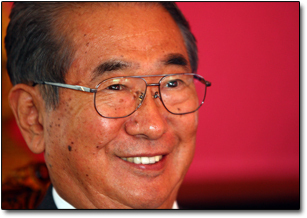
"I hope they're pulled down headfirst by their cosplay wigs."
If you move there because you dream of working in anime, you'll find that young animators are currently getting paid a whopping average of $11,000 year to work in an industry that's rapidly dying. If you go outside in any non-urban area in Japan while being non-Asian, you're going to be openly pointed to, laughed at and honked at by passing cars as if to say, "You are a foreigner! Let me remind you of this!"

"It was adorable. He put cat ears on, brandished some chopsticks and started crying."
But that's just one example. In Korea, it's not rare for foreigners to get spat on in public, and discrimination is so widespread and accepted that mixed-race people were banned from serving in the military right up until 2006.
Meanwhile, African-American and Asian travelers to Eastern Europe routinely report things like getting bottles thrown at them and having locals show them their swastika tattoos.

That's Kanji for "douchebag."
Even in "tolerant" countries like the U.K. and New Zealand, Americans of all colors can still count on strangers yelling at them in public and targeting them with anti-American graffiti.

We didn't know we were unweal.
Of course, that's assuming you actually get into the country in the first place, which you probably won't. That's because ...
Their Governments Don't Want You, Either

On one hand, every American knows immigration is a struggle -- we have iconic old-timey images of people huddled on boats drifting up to the Statue of Liberty after a months-long journey, and we know that illegal immigrants risk death to cross the desert and sneak across the border. So, Americans realize that getting into America is hard. But when we get fed up with our own country and talk about how, "I'm just going to move to (New Zealand/Canada/France/Japan) and get away from all this!" we tend to talk like the hardest part is buying the plane ticket.

"Damn you to hell, Expedia.com!"
It's as hard, or harder, to get into other countries as it is for foreigners to emigrate to America. Most countries have strict entry requirements that you can't get past by explaining that you really, really want to come in. Immigration to Canada, Australia and New Zealand works by giving "points" to immigrants who have skills or other things that the country needs. For example, New Zealand and Canada have lists of "preferred professions," most which require college degrees and years of experience.
They'll also look at things like your criminal history, "character" and whether you have any medical problems they might have to spend money on. Things work pretty much the same in Australia, although there you can gain extra points by agreeing to live for a set amount of time in an isolated, economically disadvantaged rural area.

"No Netflix or Hulu? To hell with my horizons."
If your dream is the European Union, the news is even worse. People applying for a work visa not only need to prove that they're better suited for the job than anyone in the country, but also more suited for it than anyone in the entire European Union. Oh, and then there's the high unemployment and the fact that most of the EU residents you're competing against will speak, like, six languages.
Of course, moving to these countries is not impossible -- people do it occasionally. The problem is that the negative things in your life that are likely to make you want to leave America and start over -- you're bored, you're stuck in a dead-end job, you don't like the cost of medical care, you want to smoke pot but the law won't let you -- are the same things that will bar you from entering anywhere cool.
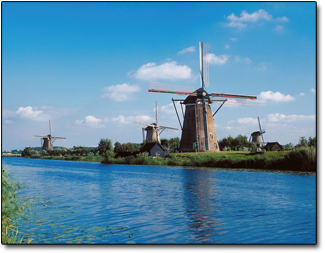
"Ooh, a washed-out loser? We'll get the red carpet."
And there's a cruel irony in the fact that most Americans don't even consider this. After all, one popular reason for leaving America is thinking that the people here are too ignorant, arrogant or uncultured. According to this complaint, these jingoistic Americans think they're better than anyone else, and think the world should love them just for being American. Who can stand to be around that?
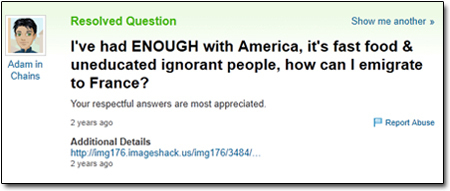
You can be happy in the knowledge that all answers were not respectful.
But in my own long emigration journey, I spent a lot of time among others who were also planning on leaving Australia. Everyone knew what they were up against, and were talking about digging up a long-lost ancestor to qualify to work in the European Union, or about auditioning for enough deodorant commercials to get a U.S. acting visa. But the majority of Americans who plan on leaving their country seem to assume that the hardest part of leaving is deciding which country to go to, like it's the same as planning a vacation.

"So the plan is to be obnoxious for the first 14 years before retiring and putting the pics on Facebook."
In other words, they wind up making the same assumption as the rednecks they're trying to escape: that every other country, while filtering out filthy immigrants from elsewhere, will be thrilled to have an American. You know, because Americans are better than everyone else and the world should love your unemployed ass just for being one.
And if you're thinking about getting around all that legal stuff by sneaking in, keep in mind ...
Other Countries Treat Illegal Immigrants Worse Than America

Recently, a celebrated journalist came out as an illegal immigrant in the New York Times, which became an opportunity for commentators to talk about on how badly the U.S. treats its illegal immigrants. Look, I'll be honest, Americans: I'm Australian, and I love my old country, but compared to you guys Australia is like that dystopian society in Children of Men.
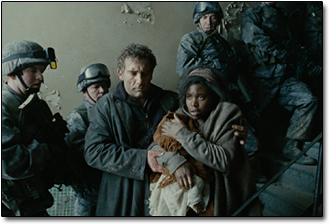
Dingos would have been on that baby within minutes.
I knew a Japanese visitor to Australia who decided to take advantage of the laid-back locals and apply for a refugee visa. She was immediately escorted out of the country by two armed guards, probably after about half an hour of hearing their hysterical laughter. Afterward, Australia billed her for all three airline tickets. Back in 2009, Australia made a big deal about the fact that foreigners who applied for visa extensions would be given "bridging visas" instead of being thrown in a detention center in the middle of the desert while their claim was processed.

It was actually a gas station, and the guy who ran it was pleased for the company.
And things could be even worse. In 2010, an immigrant in Japan died after police tied him up, put a towel in his mouth, and abandoned him on a plane to suffocate. In England, where detention and deportation is mainly handled by private security firms hired by the government, a man died in a similar way while being deported, and another immigrant was killed when police serving a deportation order in her home wrapped 13 feet of tape around her head and face, suffocating her. The police were acquitted.
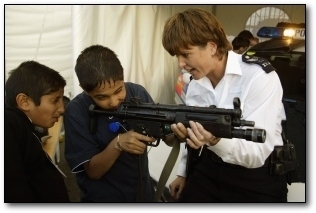
Public safety seems to have a different definition out there.
All of which kind of leads to a larger point ...
What You Hate About America, You Find Everywhere

Man, there's so much in American society that's just rage-inducing! Like that documentary you just watched about the corrupt prison system. And that movie about everyone in Los Angeles walking around being racist to each other! And reality TV!
It's totally natural to want to go to one of those countries where this shit just isn't an issue.
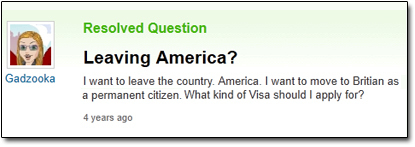
Don't do it! Their movies are either commentaries about racism, drugs or Harry Potter!
The problem here is that not only do America's problems also exist in other countries, a lot of the time they're actually worse. Is the American criminal justice system getting you down? Escape to France, where prisoners have been reduced to eating rats and get to shower twice a week -- oh yeah, and this was inside a prison where only half of the inmates had been convicted of anything. Or Japan, where they can hold you for 23 days without trial in a "substitute prison," while relentlessly interrogating you and depriving you of sleep and food, a system that has led to an extremely high rate of false confessions.
Hate American rednecks' racism and xenophobia? French Muslims are 2.5 times less likely to get called back after job interviews than non-Muslim applicants with similar qualifications, and Italy, Spain and the U.K. have all had race riots recently.

Although the U.K. are always unfailingly polite and offer to clean it up afterward.
Sick of America's shallow celebrity culture and trashy TV? Don't forget that many of the most idiotic reality TV programs, like Big Brother and that show where famous people are forced to eat bugs, were actually imported from Europe.
So why don't most Americans think about these things? I think it actually comes from something positive: the fact that Americans are uniquely willing to openly discuss uncomfortable or embarrassing problems.

God Bless America.
I found upon arriving here that Americans, unlike people anywhere else in the world, are completely happy to tell me all about their unusual bowel movements or their battle with drug addiction, even if I'm just standing next to them in the checkout line. They will happily go on national TV to discuss things that in other countries would drive people to culturally-approved suicide. Add it all up, and you wind up with a culture that is obsessed with discussing its own flaws.

"It has recently come to my attention that Florida has terrible herpes."
The downside of this, of course, is that Americans end up comparing themselves to countries that don't like exposing their own bad stuff, or worse, don't consider the bad stuff all that bad. Societies with the attitude of "Meh, she probably did something to deserve it" don't talk much about their rape statistics; countries who think the Geneva Convention is for sissies don't make documentaries about their version of Abu Ghraib.
It's like buying a house, only to find after moving in that the owner slapped some drywall over the termite damage and sprayed around enough Febreze to hide that weird corpse smell.

"Oh that? That's just 100 years of simmering racial tension. That'll be gone before you move in."
Adapting Will Be Harder Than You Can Imagine

But let's say you do make it to another country, legally, and that no one is currently strangling you. Now you have to deal with something else: culture shock.
It's easy to roll your eyes at this ("Of course the culture is different! That's why I'm moving") but everyone underestimates it, or pictures it as a series of humorous but good-hearted misunderstandings.

Today in our wacky family sitcom we learned that Chinese people are human too. Roll credits!
Those of you who remember the first time you moved to a new town as a kid (or worse, if you never did it until you were an adult) have a small hint of what it's like. There are all of the little things, like having find a new store that sells that bacon-flavored beef jerky you like, to having to find a new doctor who's accepting new patients and won't judge your prison tattoos, or having to figure out which school is least likely to arrest you while you're trying to score some sweet, sweet Adderall. In that adjustment period, all of the little everyday tasks are just a little bit harder and more time-consuming.
Now, imagine trying to do the same thing, except that the new supermarket looks like this:

"Man, the Bamboo Shield Combat Bravery Men were way cheaper back in the U.S."
No one around you can explain what you're looking at, or give you directions. If you ask them, they're likely to laugh nervously and then run away. Plead with someone that you're desperate and need help, and they'll laugh again.
See, "cultural differences" aren't just the obvious things, like making sure you wear pants when visiting a Buddhist temple. You don't realize how much of your everyday communication relies on these quiet assumptions and nonverbal cues. All of that changes. For instance, many Asian cultures respond to uncomfortable or shocking situations by laughing. Try to keep that in mind when telling your new co-workers that your grandmother has inoperable cancer.

"Tee hee! I hear that has a terribly low survival rate."
This will come up every single day. Is that policeman asking for a bribe, or trying to hit on you? That old woman openly called you fat -- does that mean she hates you? What about the other four people who called you fat that day? Is it normal in this city for another man to touch you like that? You're not going to know, and no one is going to tell you.

Also take a hint, fatty.
It's not the same for someone traveling to America. Americans are at a disadvantage when it comes to culture shock, because most of planet Earth has grown up exposed to American culture, while for Americans, this intercultural exposure is more likely to be limited to a few dubbed films and sampling of exotic porn genres. Foreigners might have misconceptions about the proportion of Americans that are slender white people who solve crimes with lasers, but at least they have some idea of the culture, food, sense of humor and how locals react while running away from giant aliens. There's a good chance they'll know some English, as well.

They really only know Clint Eastwood one liners, but it will do in a pinch.
You, meanwhile, will probably have to learn the local language from scratch, which contrary to popular opinion is not easy even when you're surrounded by it. If you're thinking that I've been beating up on Japan a lot so far, it's because I've spent a lot of time there, and I was "immersed" in the language the whole time. Yet, I once spent about six hours at an old lady's house watching the Gardening Channel because it was the only English I'd had access to in weeks. Someone using my own language to talk about potting mix was like a drink of water in the desert.

Also, I only talk in gardening analogies now.
And this will go on for some time -- Japanese, along with Chinese and Korean, is classified by the U.S. State Department as a "superhard" language, which means that it takes three times as long to learn as European languages. But European languages come with their own problems: In most of Western Europe, everyone speaks English well, which sounds good until you attempt to practice your French or German in public and the locals "helpfully" switch to English. So there's less trouble conveying the meaning of "severe yeast infection," but you'll also spend the rest of your life looking like a tourist.
Or ...
You Will Likely Just Hang Out With Other Americans

There is a reason why enclaves like "Chinatown" exist -- a person instinctively wants to be around what is familiar, no matter where they are. And yes, in other countries you do find "Americatown." These expat communities where Americans hang out together eating hamburgers and pining for Mt. Rushmore aren't just for mildly racist overseas workers in upper management. They're a completely natural reaction to prolonged cultural stress.

"And then she just started laughing. Ten minutes later my grandma was dead. Still laughing."
Hell, my country is probably among the most culturally similar to America on Earth, and I still ambush pretty much every Australian I meet, even if they're random tourists throwing up on Hollywood Boulevard. I can't exactly be discerning, since there are so few of them around. The odds are that you, too, will end up desperately seeking out the company of fellow Americans you don't even like. A worldwide 2010 survey found that almost two-thirds of people living overseas agreed with the statement, "I tend to go out with expat friends more than local friends," and those numbers get much higher when you subtract the expats living in English-speaking countries like Australia and the U.K.
If you can't imagine yourself trying to rudely bring America with you to Japan or China or Switzerland, you'll be surprised. The experience changes a person. No matter what it was about your home country that you disliked enough to make you leave, live abroad for a while and you'll start defending it. Why? Because countries are a lot like families. It's one thing for you and your sister to laugh about how fat your mother is; you react differently when it's a random dude on the street.

"If my mother has expanded her empire, it's only because she has confidence issues!"
Thoughtful criticism of America might be fine when you're among Americans, but when somebody starts on a rant about your country and you're the only person from there within a 10-mile radius, it starts to feel a lot like criticism of you. Soon you'll realize that you have only two options in how to respond: act as a dumpster for some douchebag stranger's anti-American inferiority complex, or defend yourself. It's only a matter of time before you'll be yelling things like, "Fuck you, Nixon was an awesome president!" and, "At least Transformers was better than your stupid 'Louvre'!", possibly ending on the phrase "... saved your ass in World War II."

"Everyone knows lateness is fashionable, asshole."
Then starts the internal backlash. You ever run into one of those guys who blames everything bad that happens in their life on a particular group, like liberals or women or Jesuit spies? The truth is, being an expat will probably turn you into one of those people. Even if you love your new country, you'll still start blaming it for everything that goes wrong in your everyday life, because you start to look back at the old country with rose-colored lenses.
Recently in L.A., someone ran a red light and left me with a broken car in the middle of a busy intersection. For days afterward, I yelled at anyone who would listen about how awful "California drivers" are, even though back home my brother's car had been written off by an SUV that same week. Living here has apparently made me believe that no one in Australia has ever been in a car accident before.
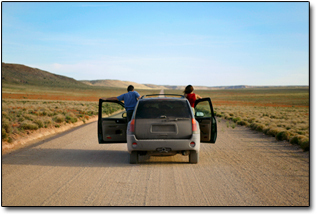
The excitement of seeing another car out here would be enough for anyone to swerve wildly.
There are always exceptions. Maybe none of this will happen to you (and in fact, surely someone will show up in the comments with a story of a perfect emigration experience). But there's a lot better chance of that happening if you know what to expect going in. And most people don't.
Follow C. Coville's Twitter here.
To see what it's like to move to the U.S., check out A Day in America According to a (Baffled) Foreigner. Or check out the gospel according to Cracked in 5 Real Deleted Bible Scenes In Which Jesus Kicks Some Ass.